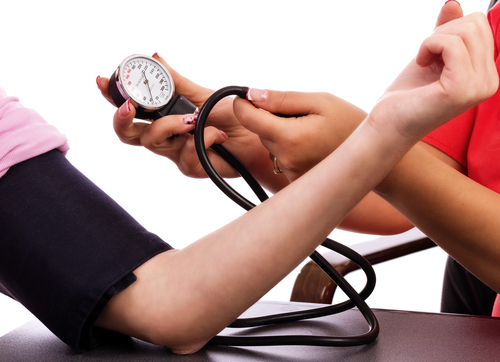Is arterial high blood pressure an indicator of stress?
mis à jour le 14 July 2015 à 18:31We may believe that the increase of our tension is due to our psychological state, but not necessarily.
80% biological and 20% psychological
Dr Pierre Laurent stated: “in 95% of cases, the precise cause of arterial high blood pressure is unknown.” It is the combination of elements such as stress and anxiety, among others, that determines this silent and discreet disease. The diagnosis stands on the confirmation of an arterial blood pressure greater than 140/90 at rest, via repeated controls. This can be gauged at home by the patient; thereby avoiding an occurrence of “white coat syndrome.”
It is not psychosomatic…
…when we are in the presence of one or more risk factors: family history, obesity, sedentary lifestyle, smoking, loins problems, cortisone treatments, contraceptive pill. Each of these could explain an elevated blood pressure. Women are less susceptible than men to chronic high blood pressure, but this difference nullifies itself following the menopause, when hormones no longer protect the cardiovascular system.
It is psychosomatic…
…when we are subjected to a stressful situation. Hot flashes, for example, can make us nervous and highlight a temporary rise in blood pressure. This is mechanical. The body has to adapt itself each time, and with very frequent stressful situations and blood pressure, the heart and the vessels eventually get tired. “But, we cannot say from there that it engenders a chronic high blood pressure, there isn’t enough proof”, underlines Dr Laurent. On the other hand, it is proved that a stressed person (with a resting heart rate of more than 100 beats per minute at rest) is more exposed to cardiovascular risks, ventricular arrhythmia or coronary artery disease. Moreover, depression can accentuate serious arrhythmias.
What to do?
Beta-blockers prevent adrenaline from accelerating the heart rate, calm palpitations and associated migraines. As for stress, the cardiologist can begin to question the patient, to assess what is going on. Then, it is up him/her to choose between a psychologist, relaxation sessions, relaxation therapy or acupuncture. Another approach, worked out by Dr Dominique Servant, includes relaxation exercises that harmonise the breathing and cardiac activity. There are video or audio exercises assisted by the doctor, available on the symbiofi website here.
Stéphanie Torre
Read more:
Psychomania: Are all pains psychological?
Does stress cause breathing difficulties?
Are back problems psychologically correlated?
Psychotherapist’s opinion: “Every pathology is due to a complex imbalance.”
Testimony: “Hypnosis helped me overcome my head and stomachaches.”
Testimony: “I controlled my psoriasis thanks to psychoanalysis.”
Testimony: “I relieved my back by learning to breathe and doing stretching exercises.”




